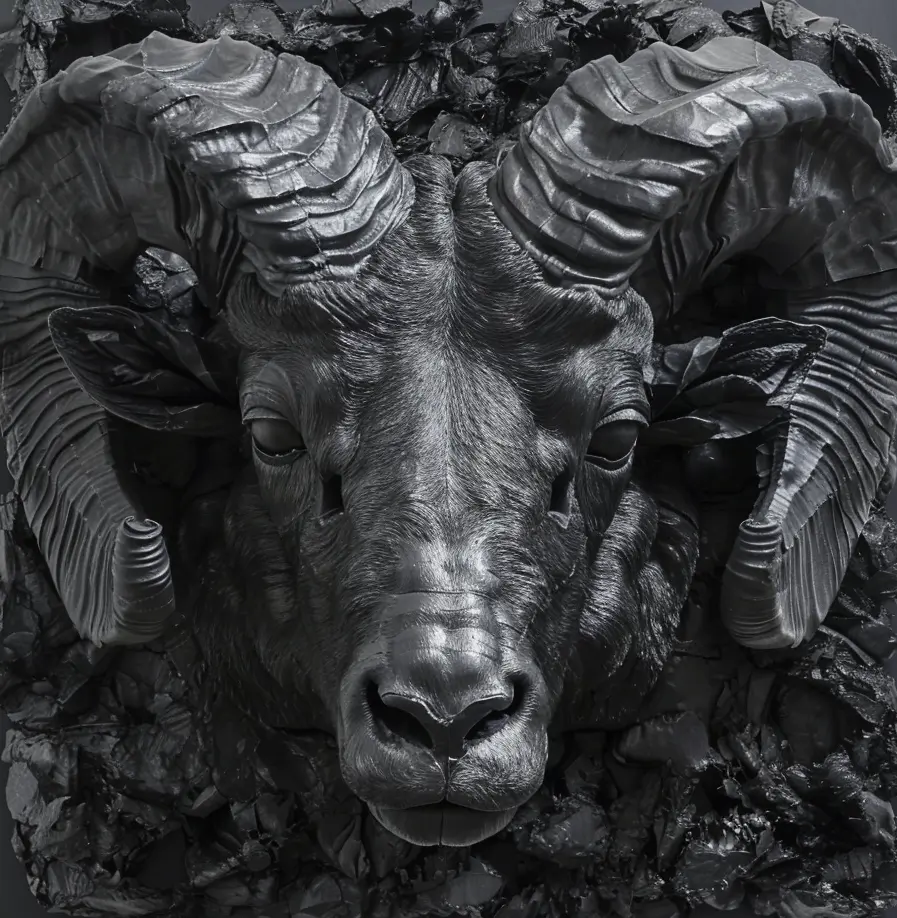The Gladiator (EORA)

"Victory is earned through battle, forged in the arena of direct competition."
At a Glance
The Gladiator transforms competitive pressure into focused power, thriving when facing a specific opponent rather than abstract goals. Their athletic identity crystallizes in head-to-head confrontations where reading, adapting, and ultimately defeating a rival brings their abilities into sharpest focus. This opponent-centered psychology creates athletes who perform best when stakes are visible and competition is personal.
Think you might be The Gladiator?
Take the Free 5-Minute Assessment →Understanding The Gladiator
The Gladiator possesses a psychological architecture built around direct confrontation. While other athletes draw motivation from personal bests or fitness metrics, this individual requires an opponent – a face across the court, a body in the opposite corner, someone whose defeat means something tangible. Their nervous system seems wired differently when competition becomes personal. Abstract training goals fail to capture their attention the way a scheduled match against a known rival does.
This opponent-referenced psychology shapes everything about their athletic experience. Training sessions feel most alive when sparring partners push back, when someone across the net forces adaptation, when the work connects directly to defeating specific people. They study competitors with the intensity of chess grandmasters analyzing opponents before a championship match. Every weakness spotted becomes a tactical opportunity. Every strength identified becomes something to neutralize or avoid, and the extrinsic nature of their motivation creates both power and vulnerability. And rankings matter to them, so trophies carry weight. The respect of competitors who have faced them in battle means more than praise from spectators who have only watched. This external validation system provides clear feedback about their competitive standing but can leave them adrift during periods without meaningful competition. Their reactive  Cognitive Style allows split-second adjustments during contests, reading situations and responding before conscious thought catches up, as combined with their preference for autonomous training approaches, they develop into self-directed competitors who trust their instincts about preparation and performance.
Cognitive Style allows split-second adjustments during contests, reading situations and responding before conscious thought catches up, as combined with their preference for autonomous training approaches, they develop into self-directed competitors who trust their instincts about preparation and performance.
Core Strengths and Growth Edges
Psychological Assets in Competition
The Gladiator’s capacity to elevate under pressure represents their defining competitive advantage. Where others tighten up when matches reach critical moments, they often find a clearer gear – the crowd noise, the stakes, the opponent’s desperation, these factors sharpen rather than scatter their focus. Their anxiety transforms into something useful, a heightened state that fuels rather than freezes, and their opponent-reading abilities develop through accumulated competitive experience into something approaching tactical intuition. Patterns emerge mid-match that escape conscious analysis but inform split-second decisions. They notice when an opponent favors a particular recovery position, when fatigue begins compromising technique, when confidence wavers after a sequence goes wrong. This real-time intelligence gathering allows tactical adjustments that coaches observing from outside could never suggest quickly enough.
Setbacks within competitions rarely derail them for long. A lost point, a failed attempt, a round that went poorly, these register as tactical information rather than emotional devastation. Each new moment offers fresh opportunity. This resilience comes not from suppressing disappointment but from their forward-focused competitive orientation that treats history as data rather than burden.
Psychological Vulnerabilities
The same opponent-dependent motivation that powers their best performances creates significant challenges during training periods without scheduled competition, and this their intensity naturally drops when no specific target exists. Technical refinement that requires patient repetition without competitive context feels purposeless, leading to gaps in foundational skills that eventually limit their ceiling.
Their autonomous training preferences, while valuable for ownership and self-awareness, can produce resistance to coaching input that feels constraining – they may dismiss systematic approaches that have proven effective for others, trusting instinct over expertise in ways that sometimes prove costly. The line between confidence and stubbornness blurs when their self-directed nature encounters guidance they did not seek.
Training Psychology and Approach
The Gladiator’s ideal training environment resembles a competitive arena more than a traditional gym. They need regular access to training partners who can push them, preferably individuals with different styles who expose different aspects of their game. Solo technical work feels incomplete without the context of how skills will apply against actual opponents. So their autonomous orientation means they develop personalized preparation rituals that may look unusual to outside observers. The players know what their body needs before competition, what mental preparation works, what warmup sequences put them in optimal states, and this this self-knowledge emerges from extensive competitive experience rather than external prescription. Coaches who attempt to override these developed patterns often encounter resistance, and structured programs with rigid periodization may conflict with their reactive nature. These athletes respond better to training frameworks that allow adjustment based on feel, upcoming opponents, and competitive schedules. The best coaching relationships grant them significant autonomy while providing tactical insights and honest feedback about competitive performance, while coaches who understand their psychology create preparation that connects every training element to specific competitive applications.
Recovery periods present particular challenges. The absence of competition feels like exile from their natural habitat. Injury rehabilitation becomes psychologically difficult not just because of physical limitation but because it removes them entirely from competitive contexts that define their athletic identity.
Compatible Athletic Environments
Optimal Competitive Formats
Head-to-head sports align naturally with the Gladiator’s psychology. Combat sports like boxing, wrestling, or Brazilian jiu-jitsu offer the direct confrontation their competitive  Drive craves. So racquet sports provide similar one-on-one intensity with tactical depth that rewards their opponent-reading abilities. Even within team contexts, they gravitate toward roles with clear individual matchup accountability – the defensive player assigned to neutralize an opponent’s best scorer, the closer who faces batters in high-tap into situations.
Drive craves. So racquet sports provide similar one-on-one intensity with tactical depth that rewards their opponent-reading abilities. Even within team contexts, they gravitate toward roles with clear individual matchup accountability – the defensive player assigned to neutralize an opponent’s best scorer, the closer who faces batters in high-tap into situations.
Competitive formats with visible rankings and regular tournaments suit their extrinsic motivation better than participation-focused recreational leagues. They need their standing to be measurable and their victories to carry meaning within a recognized competitive structure while also the respect of opponents matters deeply to them, earned through direct competitive results rather than reputation or potential.
Team Dynamics Considerations
Team environments work for the Gladiator when individual contributions remain visible and accountability is clear, and this they struggle in systems where their competitive efforts dissolve into collective outcomes without recognition. The best team situations provide them with specific opponents to neutralize or challenges where individual excellence directly impacts results.
Their relationships with teammates develop through shared competitive intensity rather than social connection alone. And training partners who can match their energy and push them become valued allies, as those who cannot meet their competitive standard may experience their intensity as overwhelming or alienating. They respect competence and effort above personality, building their inner circle around people who understand that their competitive fire reflects passion rather than hostility.
Coaching Relationship Dynamics
The Gladiator’s autonomous nature creates specific requirements for productive coaching relationships. They respond poorly to micromanagement or rigid technical prescriptions that ignore their instinctive understanding of their own game. Effective coaches recognize their self-directed tendencies and work within that framework, offering tactical insights and honest performance feedback without attempting to override their competitive instincts.
They value coaches who have competitive credentials themselves, who understand what it means to face opponents when stakes are real. Abstract theoretical knowledge carries less weight than demonstrated competitive understanding. The best coaching relationships resemble partnerships between strategist and warrior, and this the coach provides intelligence and perspective while the athlete makes real-time decisions in the heat of battle.
Performance Development Path
Growth for the Gladiator happens in sudden leaps rather than gradual progressions. Competitive experiences serve as their primary teachers, with defeats providing more developmental value than victories when properly analyzed. Each loss contains specific intelligence about what opponents exploited. Yet information that abstract training could never reveal. Their learning accelerates dramatically when facing competitors who expose weaknesses in their game, and applying their psychological strengths for development means structuring training around competitive milestones rather than arbitrary timelines. So scheduling meaningful competitions creates the external accountability their motivation system requires. Identifying specific opponents they aim to defeat gives training sessions clear purpose and direction, as their opponent-focused intelligence gathering should extend beyond competition into systematic analysis. Recording details about rivals – their patterns, preferences, and vulnerabilities – transforms scattered observations into tactical resources. This documentation habit also provides training direction during periods between competitions, connecting technical work to specific competitive applications, while the challenge lies in maintaining developmental momentum when no worthy opponents are immediately available. They must find ways to simulate competitive conditions in training, whether through challenging practice partners, internal competitions, or training environments that replicate competitive pressure. Stagnation threatens when their competitive environment lacks sufficiently challenging rivals to expose continued growth areas.
Mental Barriers and Breakthroughs
The Gladiator’s most common psychological obstacle involves the gap between training motivation and competitive motivation. They can build impressive intensity when preparing for specific opponents only to watch that drive evaporate once competition concludes. This feast-or-famine pattern undermines consistent development and creates vulnerability to competitors who maintain steady progression, as their fixation on specific rivals sometimes produces tunnel vision that neglects broader skill development. They may develop excellent tactical approaches against familiar opponents while remaining unprepared for novel challenges, as breaking through this barrier requires intentionally seeking diverse competitive experiences rather than repeatedly facing comfortable rivalries.
Breakthroughs often come through competitive defeats that shatter comfortable self-assessments. These losses, while painful, provide the specific feedback their development requires. The Gladiator who learns to embrace defeat as intelligence rather than identity threat accelerates their growth dramatically. They begin to see each opponent not just as someone to beat but as a teacher whose lessons are paid in competitive losses.
Their resistance to coaching input represents another barrier worth examining. Sometimes their autonomous instincts prove correct, and external guidance would genuinely compromise their effectiveness, as other times, their self-direction produces blind spots that outside perspective could address. Developing the wisdom to distinguish these situations requires humility that does not come naturally to someone whose identity centers on competitive conquest.
Sustaining Peak Performance
Long-term competitive sustainability for the Gladiator depends on managing the intensity that makes them effective; this their tendency toward constant competitive seeking without adequate recovery produces burnout that can end athletic careers prematurely. Building structured recovery into their competitive calendar, not as optional rest but as essential preparation for future battles – protects their competitive longevity.
Maintaining motivation across years of competition requires evolving their opponent-referenced focus. Early in their athletic development, defeating local rivals provides sufficient fuel. As they progress, they must continuously identify new challenges that stretch their abilities, as stagnation threatens when they dominate their competitive environment without seeking higher levels of opposition.
Their relationships sustain performance more than they might initially recognize. Training partners who match their intensity, coaches who provide honest tactical feedback, supporters who understand their competitive nature, these connections provide stability during inevitable competitive disappointments. The Gladiator benefits from intentionally building these relationships rather than treating them as secondary to competitive outcomes.
Physical longevity connects to psychological sustainability. Their competitive intensity can push them toward training volumes and competition frequencies that accumulate damage over time. Learning to distinguish between productive competitive stress and destructive overreaching protects their ability to compete across extended athletic careers, while the wisest Gladiators recognize that preserving their competitive capacity sometimes means declining battles today to win more important ones tomorrow.
Mastering Your Athletic Identity
The Gladiator’s path to athletic self-mastery runs through deeper understanding of their opponent-centered psychology. They perform best when facing worthy rivals, when stakes are visible, when victory means defeating someone rather than achieving something abstract. This self-knowledge transforms from limitation into advantage when they structure their athletic lives accordingly.
Their competitive intensity represents genuine psychological strength that produces results when properly channeled, while the key lies in building sustainable systems around their natural patterns rather than fighting against them. Scheduling regular competition, building challenging training partners, tracking opponents systematically, finding coaches who respect their autonomy while providing tactical value – these practical steps honor their psychology while supporting continued development.
The Gladiator who understands themselves deeply recognizes that their need for opponents reflects not weakness but wiring. They are built for battle in ways that make direct competition feel like home. Accepting this truth allows them to pursue athletic excellence through confrontation rather than despite it, turning their competitive fire into the fuel for sustained athletic achievement.
Famous Athletes with this Sport Profile
Mixed Martial Arts
Conor McGregor
Mixed Martial Arts / Judo
Ronda Rousey
Boxing
Mike Tyson
Football/Soccer
